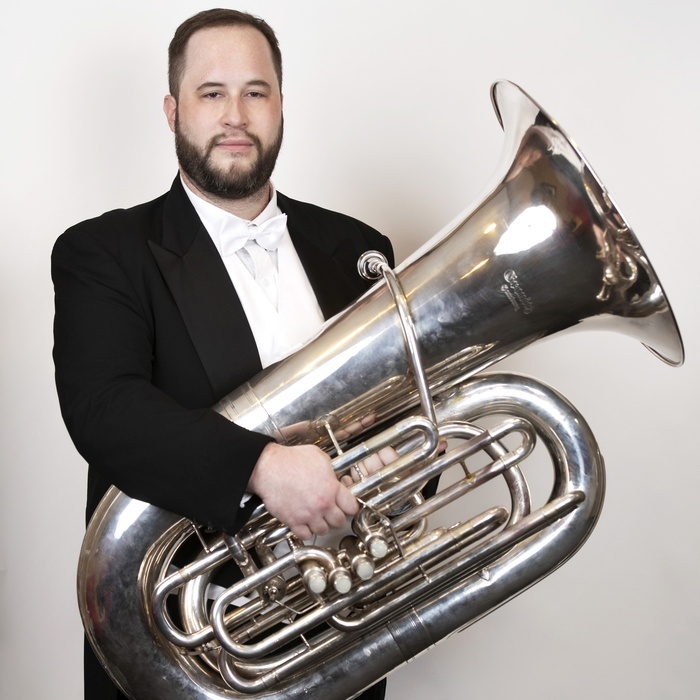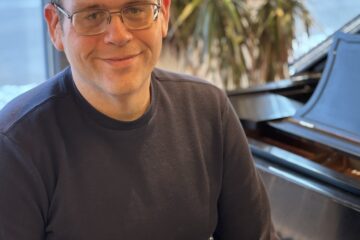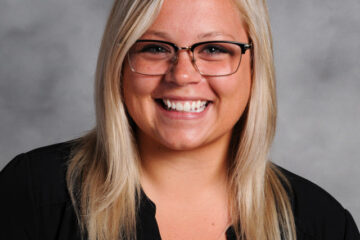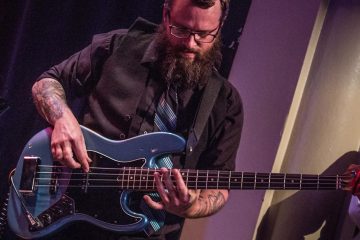
Instruments/Subjects:
Tuba, Baritone/Euphonium, Trombone
General Availability
Monday: 11:00 AM – 6:00 PM
Tuesday: 11:00 AM – 8:00 PM
Saturday: 11:00 AM – 3:00 PM
Lesson Fee
30 Minutes: $35.00
45 Minutes: $50.00
60 Minutes: $65.00
Bo Atlas
Bo Atlas is Principal Tubist with the Des Moines Symphony and teaches lessons at MUSE in Sturgeon Bay, Wisconsin. Bo most recently taught at the University of Nebraska-Lincoln for more than 5 years and performed with groups such as the Nebraska Brass, UNL Faculty Brass, and Lincoln Municipal Band during his time in Nebraska. His prior appointments include Lecturer at Truman State University as well as teaching positions at Grinnell College, Graceland University, and Simpson College. Atlas is also active as a freelance musician, performing with groups such as the Omaha Symphony, Czech National Symphony, Lincoln Symphony, Kansas City Symphony, South Dakota Symphony, and more.
Atlas is sought after as a soloist and chamber musician and has received many accolades for his solo work including recent premiere performances of Charlie Johnson’s “Pastel Wonderland” with the Lincoln Municipal Band and Tyler White’s Tuba Concerto “Resilience” with the UNL Symphony Orchestra. Equally comfortable with Orchestra, Wind Ensemble, or Brass Band his solo work includes performances of Ellerby’s Tuba Concerto with the Hastings Symphony Orchestra, Vaughan Williams’ Tuba Concerto with the Central Iowa Symphony, Michael Daugherty’s “Reflections on the Mississippi” with the Truman State Wind Symphony, and Paul-Lovatt Cooper’s “Quicksilver” with the Free State Brass Band.
Mr. Atlas is also a strong proponent of the British Brass Band movement in the United States, having played both Eb and BBb Bass with the Fountain City Brass Band, and Eb Bass with the Tallgrass Brass Band. Other competition awards include having been a Semi-finalist at the International Tuba Euphonium Conference in 2010, Finalist at the Arapahoe Philharmonic Concerto Competition in 2011, winner of the University of Kansas Symphony Concerto Competition in 2012, winner of the Great Plains Regional Tuba Conference solo competition in 2009, and winner of the US Army Band Mock Audition in 2012.
Atlas is also a co-founder of the Des Moines Low Brass Triumvirate, where he performs with fellow members of the Des Moines Symphony’s Low Brass Section. The DMLBT aims to provide high quality musical performances to Iowa’s communities, and to reach and teach students throughout Iowa and the greater Midwest. The group has presented clinics and performances at the Iowa Music Educators Association Conference and the Great Plains Regional Tuba-Euphonium Conference, and hosts their own Low Brass Day events across the Midwest.
Atlas received a Bachelor’s Degree from the University of Kansas, a Master’s Degree from the University of Nebraska-Lincoln, and is finishing a Doctoral Degree from the University of Iowa. Bo’s primary teachers include Tony Clements, Craig Fuller, John Manning, Sam Pilafian, Patrick Stuckemeyer, Peter Warhaftig, and Scott Watson.
More information on Bo can be found at www.boatlas.com
Teaching Philosophy
General Philosophy
Angela Lee Duckworth gave a fascinating TED talk in 2013. Her presentation is titled “Grit: the power of passion and perseverance,” and she speaks about “grit” being the greatest determining factor for success. Simply put, grit is a complicated formula of desire, willingness, and intrinsic motivation (among others) that determines your ability to work in each setting. Duckworth says in her presentation “[t]alent doesn’t make you gritty.”
I believe that every student is teachable. We have enough pedagogy and methodology to help just about anyone become a better musician, but we still struggle to help those that can’t help themselves – students that lack enough grit to overcome their personal circumstances. As regrettable as the situation is, the blame can’t be placed solely on the student. Humans are going to prioritize necessities such as shelter, food, water, etc over time in the practice room. It is folly to think that a student is going to succeed in Tuba lessons when they don’t know where their next meal is going to come from.
After the necessities, humans seek out acceptance, community, and love. As teachers we must approach every student where they are, and there is only so much we can do to maintain a standard of performance if those necessities aren’t taken care of. As a result, we should foster experiences that create acceptance and community for those students, while also celebrating achievement and success. Compassion must be the most important thing. “Always try to be nice, but never fail to be kind.”
Applied Instrumental Pedagogy
My teaching philosophy is one of radical pedagogy – that is the idea of having as many types of pedagogy and teaching tools at our disposal as possible. I have a clear vision for what pedagogy means to me when I play the instrument, but I do not seek to enforce it on my students. If there is not an existing base of pedagogy, the process begins in a more philosophical place that becomes nuanced and detailed as the student advances. My instruction is informed by the teachings of Arnold Jacobs, but also encourages students to seek out other schools of thought through research and collaboration. I use six short ideas or “holophrases” from Jacobian theory to provide a framework through which students can explore their instrument and view other pedagogy. They are the following:
1) “Play by sound, not by feel”
When making music, conceiving what we want to sound like is of paramount importance, and the best way to achieve this is through listening to as much great music and as many musicians as possible. The mental concept is the map to what the body is trying to accomplish.
2) “Paralysis by Analysis”
Awareness of physical sensations can inhibit a performer’s ability to play. To avoid this the performer should try to keep the sound at the front of their mind. Visualization also helps by imagining how something looks and sounds instead of
how it works. This is also very oriented to the pedagogy included in “The Inner Game of Tennis” by Timothy Galwey.
3) “Breathe to Expand, don’t expand to breathe”
Awareness of the body when breathing can inhibit breathing. Focusing on the point the air enters our body can distract us from paralyzing thoughts of expansion.
4) “Blow and Breathe from the Lips”
By focusing our attention on the air moving through our lips, we can help ourselves breathe with less tension in the mouth and throat.
5) “Tension is the Enemy”
Tension is heard in the player’s sound and inhibits the performer’s ability to play. Tension can take many forms including, but not limited to, deficiency of tone, roughness of slurs, and inaccurate articulations.
6) “Song and Wind”
Proper air support and a clear enough musical intent are crucial to the process and should be prioritized. Making brass playing complicated in our minds will only complicate playing the instrument, but thinking holistic thoughts and using great air will lead to greater success as a artist.
My approach also advocates for “training the musician between the ears”, which includes developing skills away from the instrument. This involves isolated breathing exercises to improve air, audiating (singing) to improve musical intent, buzzing on the mouthpiece to improve embouchure and air function, rhythmic valve exercises to improve finger coordination, and a wide array of other exercises. These off-the-horn approaches usually lead to more imaginative thinking when practicing. While learning etudes, solos, and ensemble music I want my students to hone their ability to create derivative exercises (the topic of my dissertation). This will allow them to create opportunities to challenge themselves, refine their technique, and develop an invaluable teaching tool to use with their own students.
I also want to help my students become as marketable as possible. In my own experience, participation in chamber music and other collaborative projects leads to greater knowledge as a performer, composer, arranger, and business liaison. It is through experiences like these that I began composing and arranging for brass ensembles, as well as becoming familiar with the business side of musical events. I try to facilitate this in my own studios by overseeing ensembles where students are able to conduct, compose, and arrange music for their peers and colleagues.
A former teacher once told me “we should try to be more than just tuba players,” and I’ve tried to embody that as a teacher and performer. While it is principally important to be an awesome player, I believe it is equally important to foster a collegial environment that promotes collaborative learning. As a teacher of low brass, I strive to give my students the technical, artistic, and practical skills they need to succeed in their professional endeavors.


